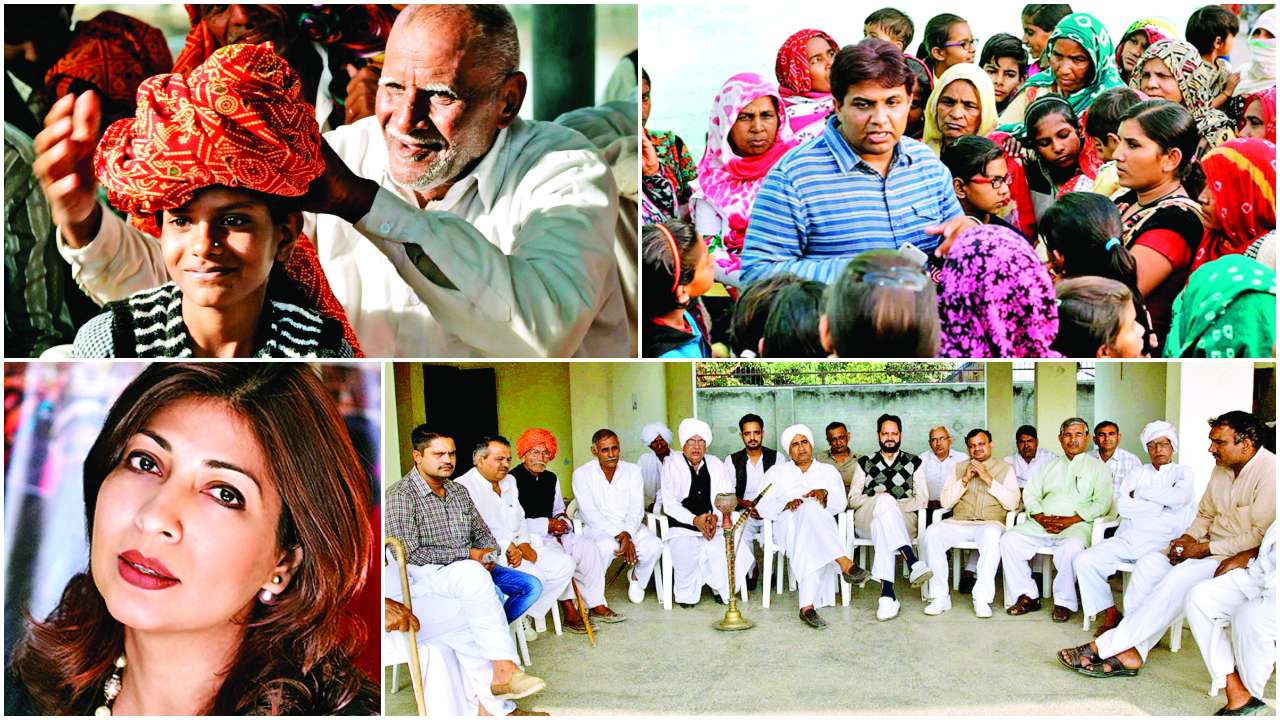
Sitting in Vibha Bakshi's flat, in the midst of the glass and concrete jungle of Bandra-Kurla Complex, Mumbai, it is very difficult to imagine the rural hinterlands of Haryana with its horrifyingly low sex ratio and atrocities against women. Son Rise, Bakshi's first documentary after Daughters Of Mother India (on the aftermath of the Nirbhaya case) plunges us into this milieu. The first 30 seconds of the film, where the filmmaker asks young boys playing in village streets if they have sisters (the answer is a unanimous no), immediately brings the attention to the problem.
It is here in the region notoriously known as Kudi Maar (the land of daughter killers), that Bakshi found her heroes – men who are fighting for equality and doing their bit to empower women. In the course of the documentary, we meet Sunil Jagalan, the Sarpanch at Bibipur, in Jind district, who is spreading awareness about female foeticide one village at a time; Baljit Singh Malik of Gohana, Chief of the biggest and most influential khap panchayat in India comprising 1,140 villages, who is leading a drive to end female foeticide; and Jitender Chhatar, from Jind, who married Kusam, a survivor of prolonged sexual assault by eight men, and has been fighting for years to bring her rapists to justice.
The linear correlation between female foeticide to a lack of women for men to marry in these villages and finally, to sexual atrocities, gang rapes and trafficking of women is established through the course of the film. At the same time, there is hope for change as men like Malik and Jagalan continue to spread the message against female foeticide. The voices of these three men, as well as several others – a folk singer who sings about female foeticide; the police officer who initially took up Kusam's case before being transferred; a wrestling coach who has an akhara for girls; and the director at a hospital who stopped people from doing sex determination tests – add to the narrative.
Documentaries such as Son Rise seek to create a dialogue. "It's not just a women's movement; it's very important that men become a part of the struggle. And in this film we've focused on ordinary men, who have done the extraordinary to change the narrative on inequality. We're hoping that when other men see that there are men who could do this coming from the seat of patriarchy [Haryana], then there is no stopping us," explains Bakshi.
It is important, the director feels, to give men role models. And even men entrenched in patriarchy are forced to take notice when other men from their milleu open up to change. As Jagalan says in the documentary, "I realised the problem and I changed, I am sure others will too."
At the beginning of the film, Malik is resistant to Bakshi's questions. He goes as far as to say that women have no place at a khap meeting, thereby intimating that Bakshi, too, is out of place. "The hardest part was actually interviewing the men. They were uncomfortable being questioned by a woman," she explains, adding, "It's very important, as a documentary filmmaker, to also keep your own opinion in check. I was entering an area very alien to me. I am a city-bred girl, so I had my own biases against the khap. I realised that it was coming in the way of the filming. When I interviewed the khap leader, he could tell that I was as prejudiced against him as he was against me and it was only when I made a conscious effort to start on a blank slate that the conversation started."
Change came to the leader of the largest khap in Haryana when he realised that he, too, needed to keep up with the times. Two years into filming the documentary, during it's last leg, Bakshi had a very different interview with Malik, who said that change is inevitable and that he too has embraced it. If his declamations against female foeticide at khap meetings is any indication, he has embraced this change wholeheartedly.
Despite its hopeful undertones, there are no cut-and-dried solutions. After more than two years of struggles, death threats and selling off his land to fight his wife's case, Chhatar had to face the shattering reality that all eight of her assailants were acquitted on the basis of lack of evidence. Jagalan and Malik also have their own challenges to face.
With the film being supported by the United Nations as part of their #HeforShe initiative, and getting positive reactions at each screening, Bakshi hopes to spread the message of equality everywhere – including Haryana, where her journey began.